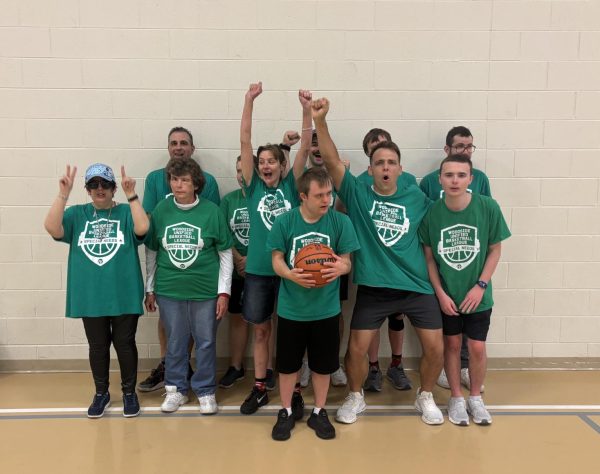Soccer player adjusting to life at OU
Last year marked the 10-year anniversary of NATO’s bombing of Serbia for what was then called “humanitarian purposes.”
Over 3,000 people were killed and many cities, including the capital city of Belgrade, have yet to fully recover.
In 2008, a Serbian-born player from the city of Belgrade took the field for Oakland University’s men’s soccer team. As a redshirt sophomore living in a foreign country and learning a new style of play, Vuk Popovic initially struggled to find his form on the field.
Last year, however, Popovic — who was just 11 years old when he watched missiles launched from NATO battleships in the Adriatic Sea fly through the air and into their intended target from his fifth-floor apartment — started in 16 games for the Grizzlies and was named a member of the All-Summit League Second Team.
“I would sit on the balcony with my father and sister and watch the missiles, which were about the size of the couch in my dorm, just fly around the sky,” Popovic said. “The closest one ever got was about from where my apartment is (the student apartments on campus) to the Chrysler building. That one I could feel the vibrations from, but NATO always told us which target they would hit and they would always hit their target. (NATO) knew what they were doing.”
Popovik has not seen his family since Christmas. He still communicates with them frequently over the phone and has taken advantage of using Skype as often as he can. His mother’s name is Dalija and his father, Djordje (pronounced George).
Popovic plans on returning home to see his family after he finishes his summer semester and is excited for the comfort that his hometown, a metropolitan city of over 1.5 million people, provides.
“There is just a different breeze, a different smell back home,” Popovic explained. “At home I can take a one-hour walk to get downtown and would never be bored (along the way). Here if I start walking down interstate-75, I would get lost and people would laugh at me.”
Even for the greatest of athletes competing at the high school level have an adjustment period that involves times of struggle before they excel or feel comfortable in collegiate competition. For an athlete that transfers from a country such as Serbia, that adjustment period becomes harder, and in truth, never really stops.
The style of play in Serbia differs drastically from the style in the U.S.
Instead of being applauded for his ability to possess the ball and create plays for teammates out of the back, the 6-4, 200 pound center back was forced to learn that defenders in the U.S. are required to play much more conservatively.
“Vuk is not your typical center back, other than his size and strength. He is very comfortable with the ball at his feet and can help us jump start the attack and build a little more from the back,” Oakland head coach Eric Pogue said. “Sometimes he tries to do too much, but he has been improving on that aspect of his game.”
Popovic admits that it was his size and strength that got American coaches attention when he sent them highlight videos in the hopes that a scholarship offer would surface.
He also admits, though, that what helps him in the American game hindered him in the Serbian game.
“In America, they would probably have cut Lionel Messi (world player of the year) because they would think he is too small,” Popovic said. “That is why they liked me, but at home they did not like me because I was so big. The game is so different at home … every player on the field has to be skilled and there are not as many fouls because they want to protect the players.”
Popovic has a theory of his own as to why the American soccer game allows and even seems to encourage a more physical and dangerous type of soccer game.
“I think it all comes from (American) football,” he said. “Before games when I first got here guys would punch me to get me ready to play. Now I am used to it, but I still don’t need you to come and punch me to get me ready to play.”
Upon returning to Belgrade, Popovic said there is one thing that he wants to bring with him from his time spent at Oakland.
“Around here,” Popovic says, “almost everybody smiles and is genuinely happy when they talk to you. Back in Belgrade, I smile and am happy to be home, but they (people in Serbia) tell me that there is no reason for anybody to be smiling that much.”



